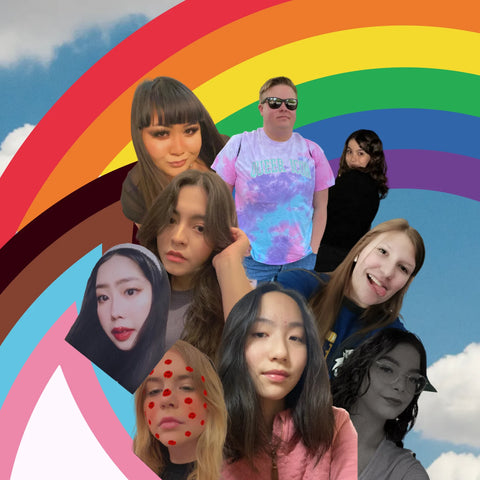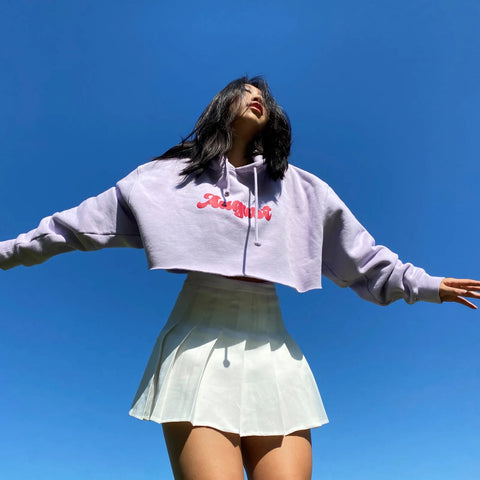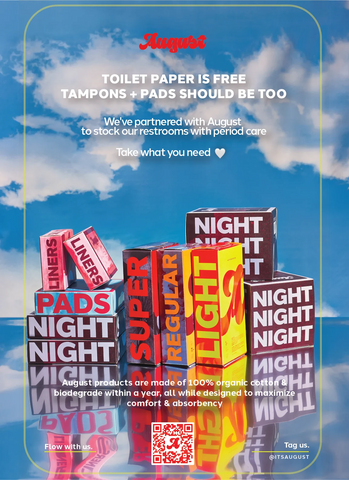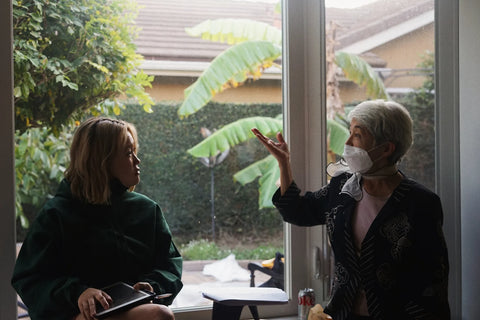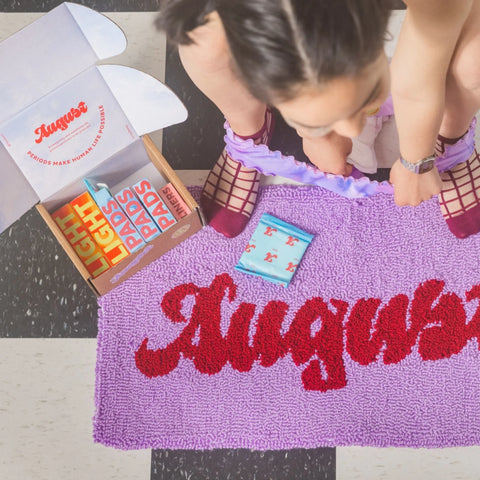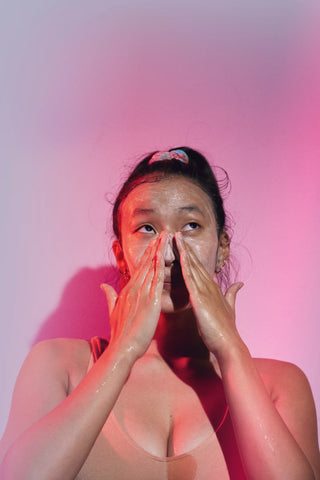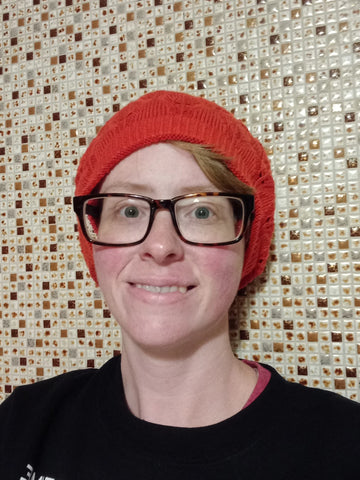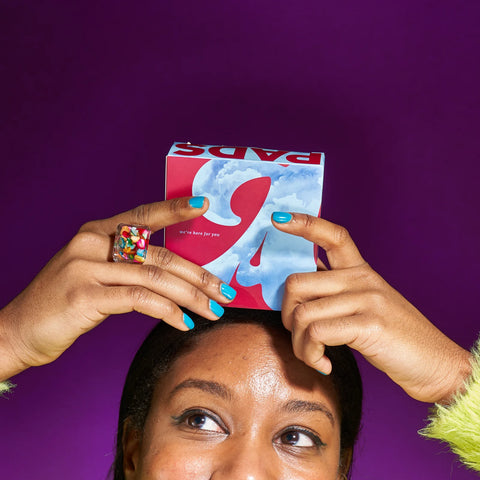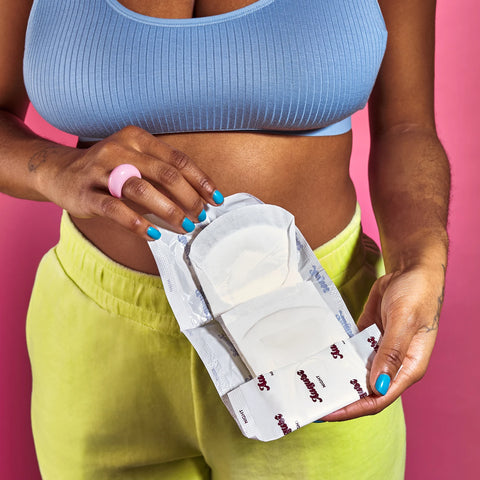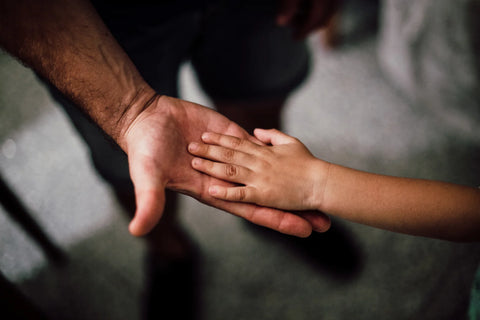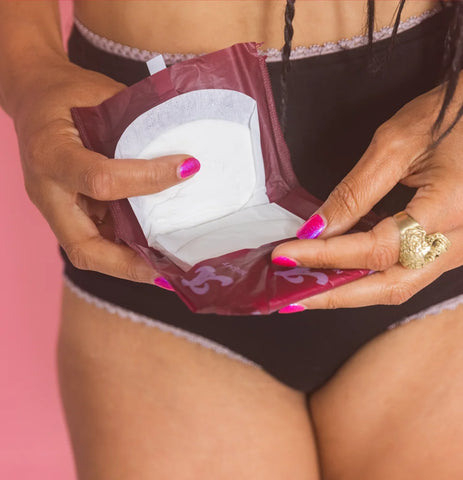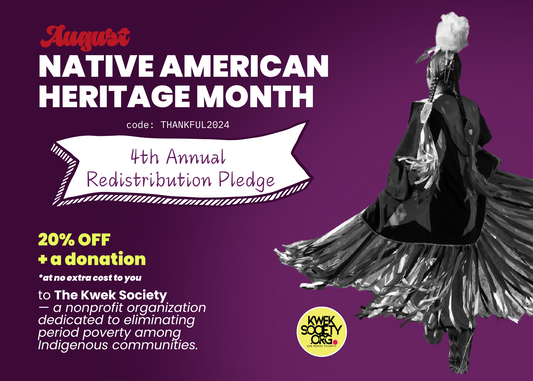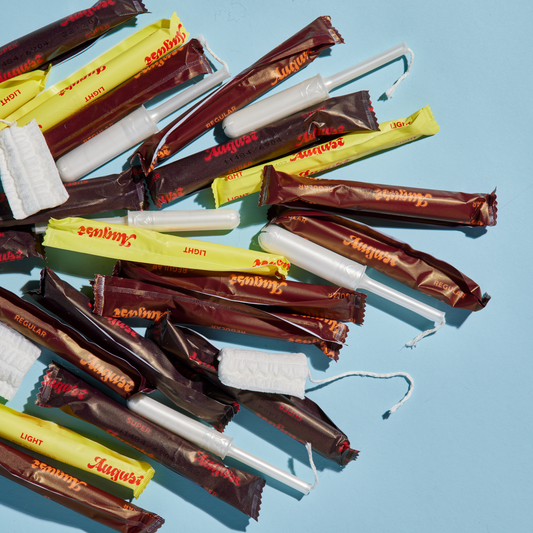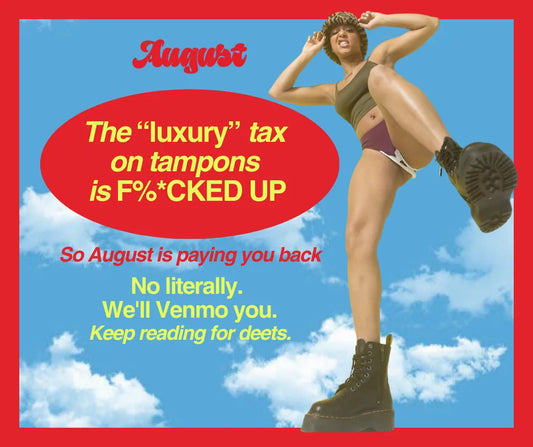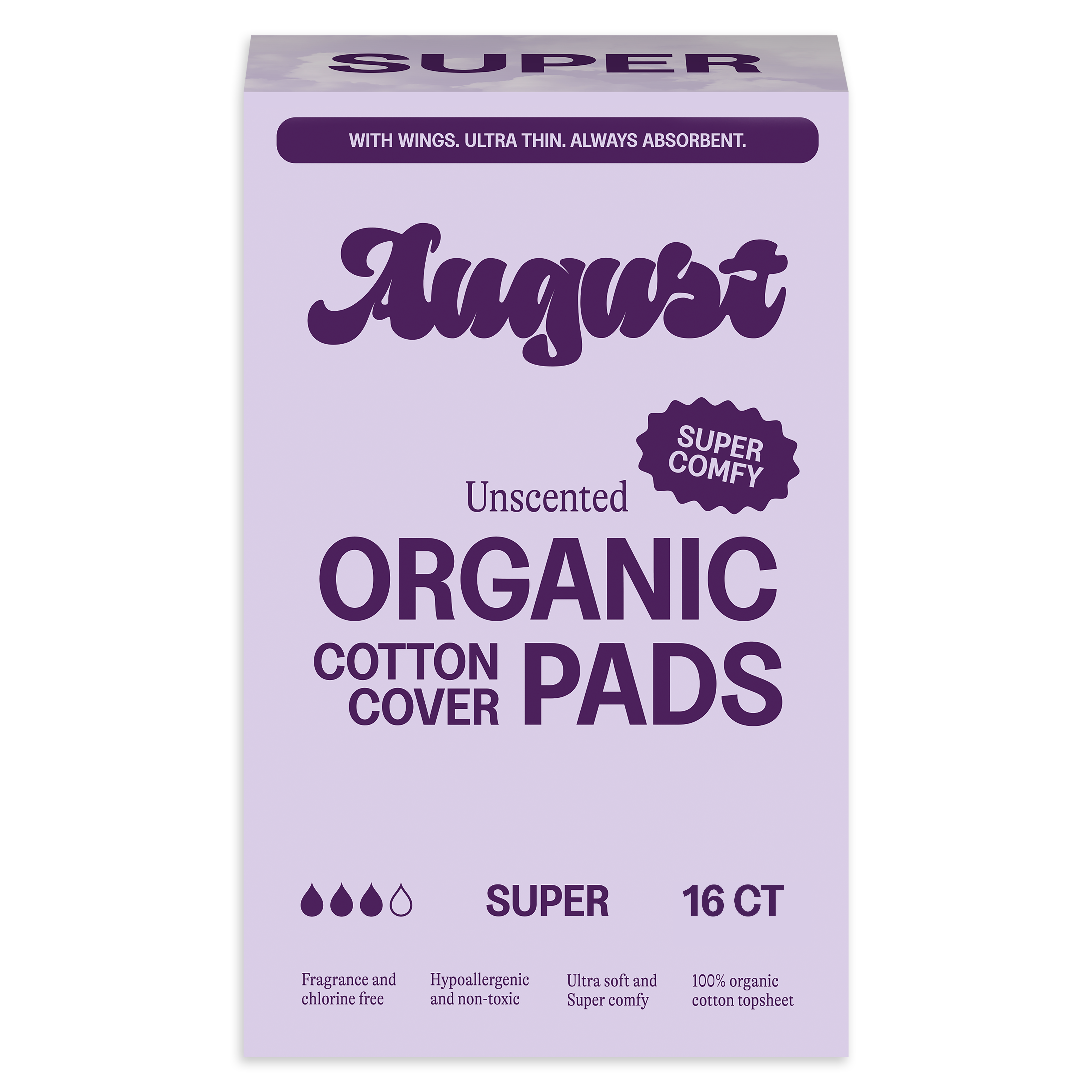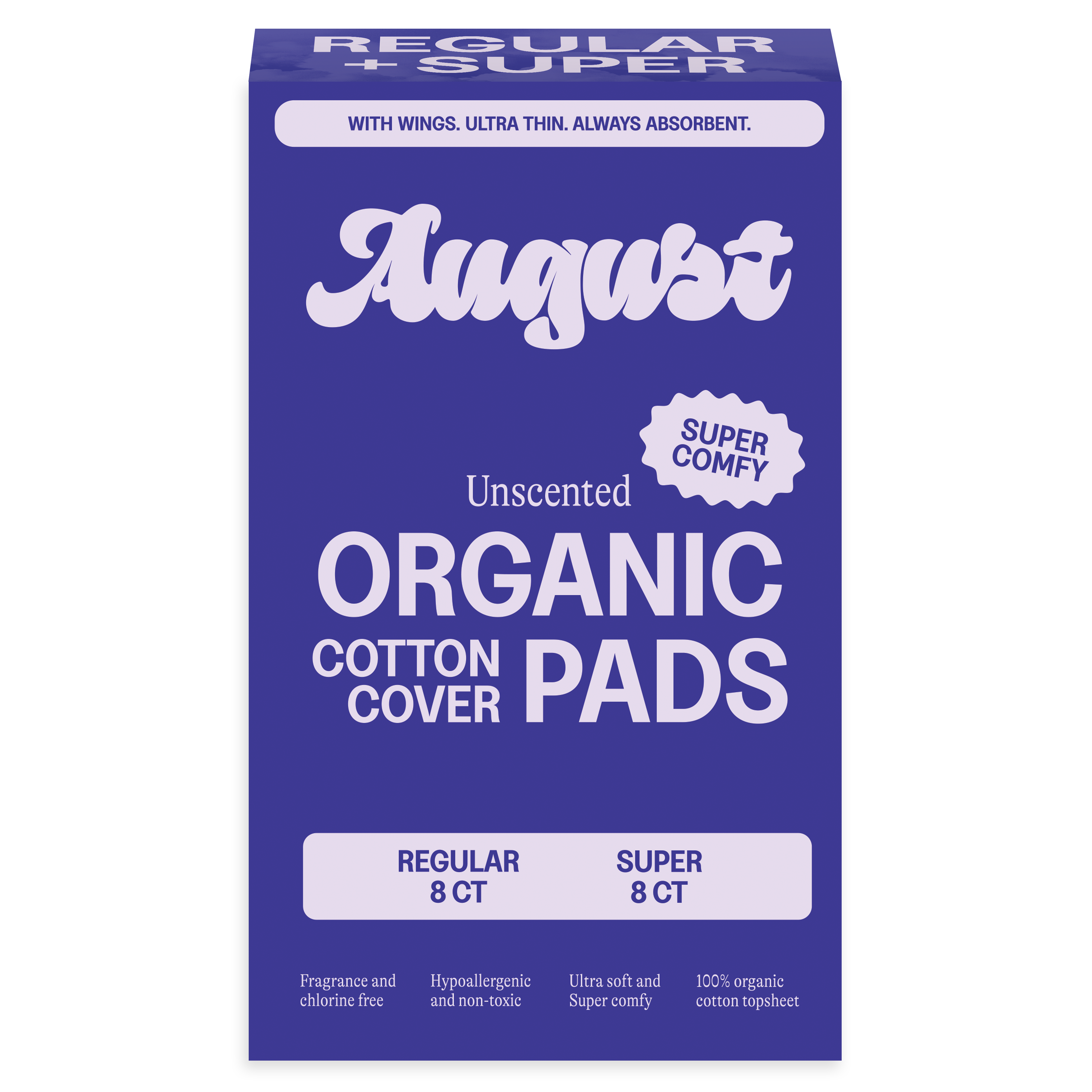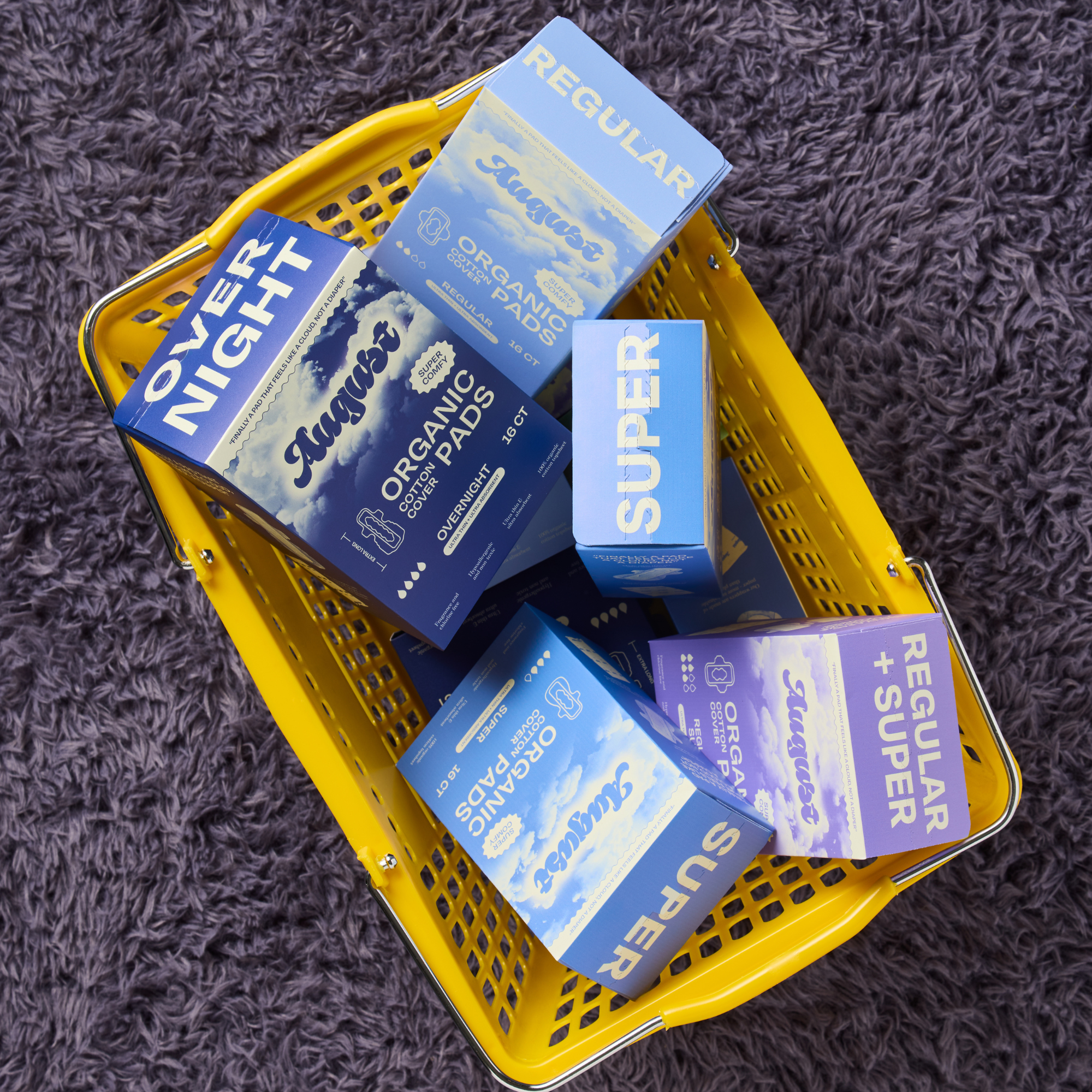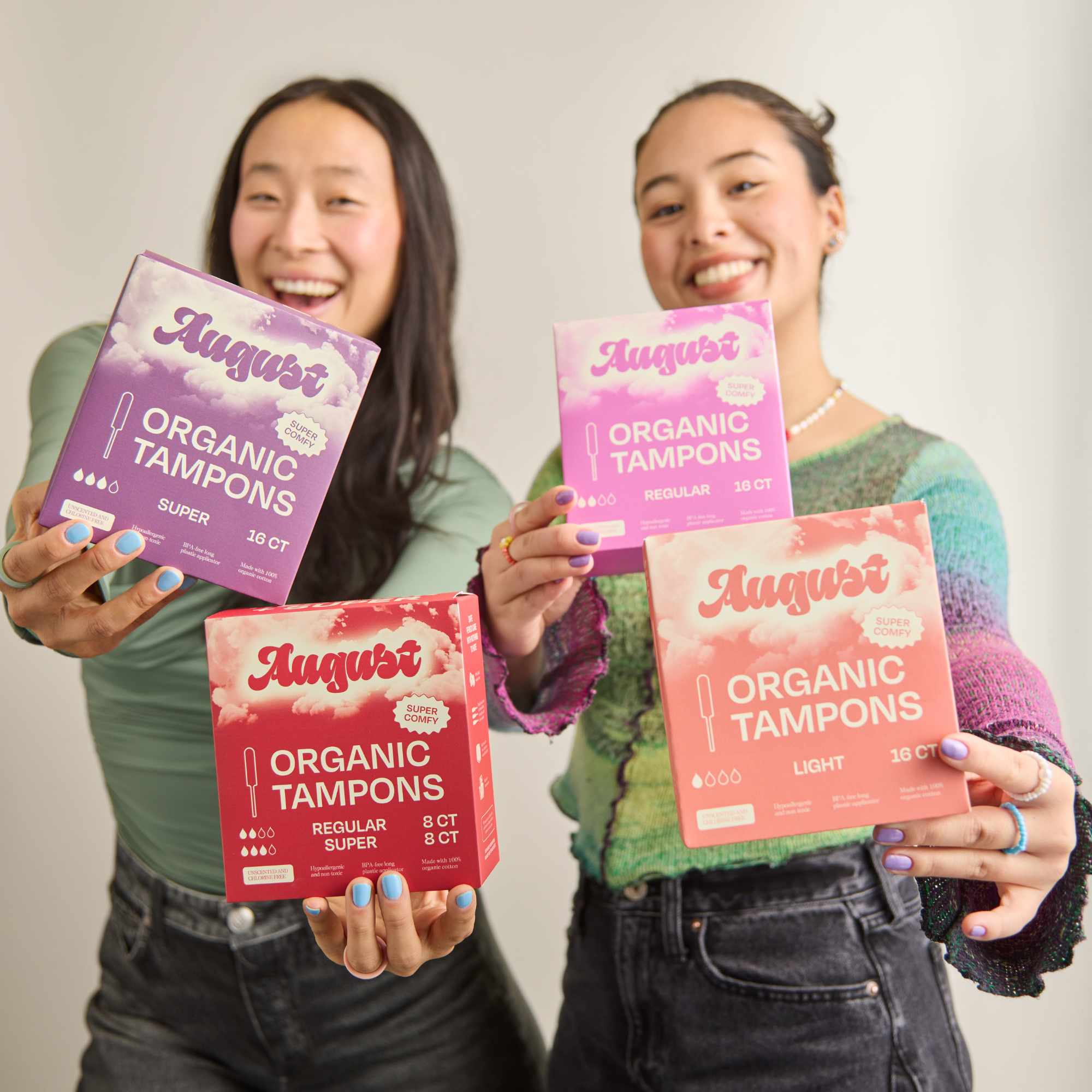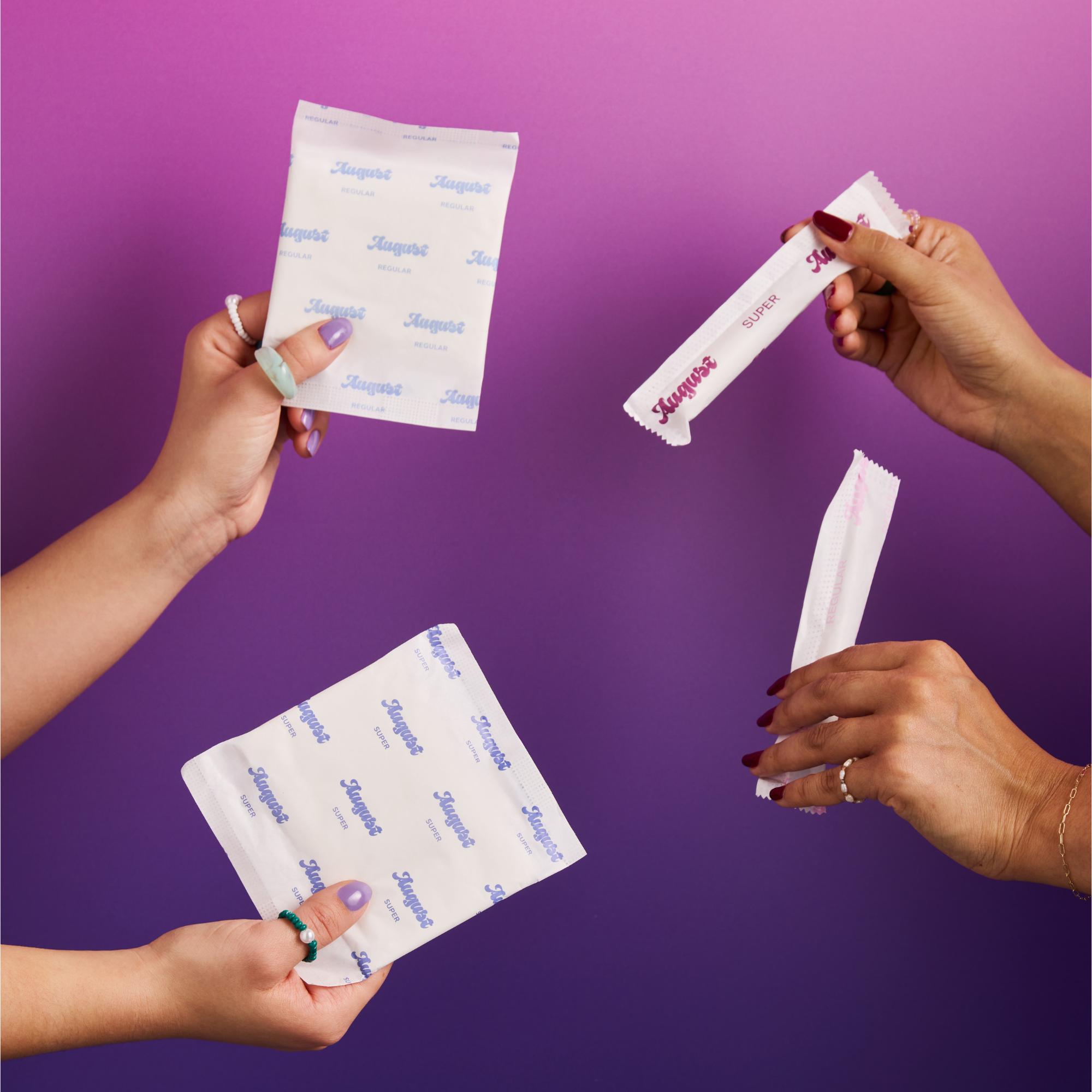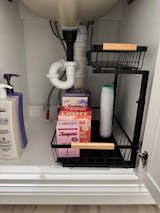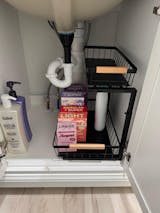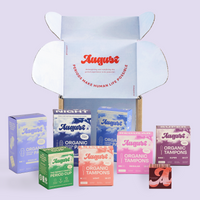Starting a company is a huge undertaking, especially as a couple of Gen Zs wrapping up their undergrad degrees…
August has two main leaders:
-
Nick Jain (he/him) is our Co-Founder & COO who’s a recent grad from Princeton and started two different companies all before the age of 23! Nick likes to talk about analytics more than he enjoys giggling over the latest Tiktok trends but fun fact: he’s definitely in the running for Team August’s biggest Billie Eilish fan (close between him & our Customer Care Associate Elena!)
-
Nadya Okamoto (she/her) is our Co-Founder and CEO who you might know from her years of nonprofit work or, more recently, from her August tampon demos and unapologetic photoshoots. She also just finished a degree at Harvard (where she ran for office omg!), and has been leading the period positivity movements and efforts to reduce period poverty alongside other amazing menstrual activists!
Where did you get the idea for...
August as a company?
Nadya: “I worked in the nonprofit space for 6 years, and during that time the organization I founded and led had distributed over 25 million units of period products. So I had to know a lot about the products, and also got to know the brands in the space really well given that they were product and monetary donors of the organization.
Through that work, I kept feeling like there was a vast and urgent need for more sustainable tampons and pads, which were always the product of choice for people we were serving, that were actually sustainable and value-aligned with the message of rethinking the narrative around periods to be powerful, rather than something stigmatized that menstruators should be ashamed of.
In 2018, I published my debut book called Period Power and in the process of writing that book, I also did a lot of research about the history of branding in the period space. I felt like I could track how the period stigma was shaped by these corporate brands throughout the 20th century and started to conclude that if brands were the ones shaping the period narrative, then they could also change the narrative.
That’s what I wanted to do with August! Nick, my co-founder, and I were working together on another company at the time, and so we had gotten into a groove with building together. We’re also so aligned on the desire to build a brand for Gen Z in a community-centered way – something we wish we saw other brands doing more.”
August as a name?
Nadya: “‘August’ was first suggested as a name by one of our first investors, Bobby Hundreds, who has been a role model of mine for years now. He wrote a book called This is Not a T-Shirt a few years ago, about streetwear culture and what went into building his brand, The Hundreds. Put simply, I knew that I wanted to do what he did to T-Shirts, but with tampons. He gave cotton T-Shirts a cultural meaning that was about community and owning your identity.
In many ways, that’s what I want to do with August as a brand for period products. As soon as he suggested the name, I was really excited about it because it is gender neutral, and translates to mean majestic dignity. And dignity – aka self-worth – is exactly what we stand for, and hope for all menstruators to feel. Plus August is a month and guess what else comes monthly…”
How did you choose which core values and company pillars to prioritize?

Nadya: “At our core, we knew sustainability was key. From a product standpoint, we looked at the period space and listened to the complaints of our community about their current product offerings, and knew that we needed to find a way to make sustainable tampons and pads that were just as, if not much more, effective. Because while we all love more sustainable products, we still need them to be leak proof! Sustainability and comfort was key.
Inclusivity and transparency were also central values of our brand from the very beginning. We wanted to make sure that the brand was inclusive of everyone who menstruates – regardless of gender or background. And we emphasize that it shouldn’t be a scary dark secret about how period products are made.
We all had so many unanswered questions about how other brands made products or even what chemicals were used in that manufacturing process. We wanted to provide a different version of period care where you could feel empowered to ‘Ask August’ any and all questions, and get the answers in a comprehensive way.
So, in sum, August’s main values are: sustainability, inclusivity, accessibility, transparency, creativity, education, empowerment and integrity.
Can you speak to the Inner Cycle and community element of this brand?

Nick: “Before we even formally decided to start August, Nadya and I spent hundreds of hours just analyzing the period product space and having conversations with menstruators, and something that became immediately apparent was that other brands were missing the mark because they fundamentally weren’t listening to their customers.
Ultimately, we realized that August exists for and because of its customers, and so we wanted those customers to be our partners in every step of the process.
Our Inner Cycle Community embodies that ethos – they are why we are building August and who we are building August for. Not only do we hope that our community members will create connections with each other, and that the Inner Cycle can exist as a safe space for menstruators to talk openly and honestly about periods in a way that hasn’t existed before, but we also need and rely on the community to drive everything that we do as a brand.
Most simply put – we are a community built brand. Everything about how August exists was informed by and created for the Inner Cycle.”
Why did you decide to make tampons, pads, and liners versus other period products?

Nick: “In all honesty, this decision was made by our community, the Inner Cycle. In the earliest days of August, before any part of the brand had really crystallized, we spent hours analyzing every product on the market. But when we actually talked to our community about what products they were using, and what products they felt comfortable using – over 95% of them said tampons, pads, or liners.
That was a really important moment of listening to our customers and meeting them where they were. We wanted August to be a new beginning for menstruators – a start with higher quality period care that was impactful, connective, and sustainable, but to do so, that period care had to be something that customers actually felt comfortable using.
I sometimes get asked why August started with disposable pads and tampons when sustainability is a core pillar of the brand, and the truth is that, while it is certainly true that some products such as menstrual cups, period underwear or reusable pads are more sustainable, if only 5% of menstruators feel comfortable using them, the true environmental impact is not as great as creating an option for 95% of menstruators that may not be quite as sustainable but that is a step in the right direction.”
What does ‘sustainability’ mean to you as founders?

Nick: “I think about sustainability as both a journey and its North Star.
For August, it is the North Star that informs our decision making processes, and as a founder, I try to ensure that every decision we make is aligned with creating a more sustainable future for period care.
But it is also the journey of getting to that ideal – a really important moment for us was realizing that we weren’t going to start at perfection, and in fact, that we couldn’t. We launched with disposable period products – but we did so because we knew that we needed to take the journey of making more sustainable period care alongside our community’s needs. One where we all are honest about what we are doing well and where we need to improve.
I don’t think sustainability is always about jumping to the finish line, because I believe that you inevitably leave people behind as you do that. The innovation of creating the most sustainable possible solution is certainly vital, but so is making sure that people actually use that solution.”
An example of sustainability changes we’ve made even the first year of August products being in the world are with the pad boxes. We tracked consumer patterns and realized a significant amount were ordering more than 4 pads and so we could easily reduce packaging by increasing our pad box size to contain 12.
We still have a lot of progress to make but we're happy to be on this journey together.
What are some key takeaways or reactions from investor conversations that you’ve been in for August?

Nadya: “We were really thoughtful about which investors we brought in during these early stages of the brand. Our values, and the values of any company, should be reflected at all levels of the company, and that includes our stakeholders.
Sustainability was something that almost all we talked to were easily hyped about. Boldness about marketing our period care? Not so much.
I knew from the very beginning that we wanted to be as real as possible about talking periods. No euphemisms like ‘Aunt Flow’ or ‘Shark Week’ or delicate words like ‘sanitary products’. And that includes showing period blood!
Some investors took some more convincing than others on why that was a necessary and effective strategy. And the ones who weren’t able to see our vision with that, we eventually parted ways with.”
What are you most proud of about August’s first year of having period products in the world?

Nadya: “I am most proud of how our community and brand has been able to make a tangible impact with our growth. I love that we have stayed true to being transparent and comprehensive with our education about our products and periods!"
What does a period positive world look like to you?

Nadya: “I think in an ideal, period positive world, period products would be sustainable, high-quality, comfortable, inclusive, and just as accessible as toilet paper, for everyone who needs them. Of course, you can buy it at the grocery store when you need it at your home but beyond that TP is free in every public restroom (i.e. office spaces, highway stops, at shelters, or in school restrooms).
In addition, there would be no sales tax on period products, considering them non-essential goods (like there still is in the majority of US States), and programs like food stamps and different WIC programs would cover period products as necessities too. Having this level of period product accessibility is possible, just look at Scotland!”
What advice can you offer to young menstruators or period activists who want to break down menstrual stigma?

Nadya: “Just start talking about it! I know that sounds simple, but historically period stigma pushed people to be silent about menstruation. We are made to feel ashamed of our period to the point that we are embarrassed to ask even basic questions about our own health.
The more we start positive and curious conversations about the period experience (i.e. menstrual cycles, period pain, menstrual cramps, and products), in addition to the impacts of period poverty and stigma on health care and our overall society, the more we make positive change towards breaking down menstrual stigma."
Thanks to Nick & Nadya for being wonderful leaders of Team August!

If you haven’t listened to Nick & Nadya’s featured podcast episode on 'The Period Feels', listen on any major streaming platform and join the Inner Cycle community to submit the possible next question to be picked for an episode!

